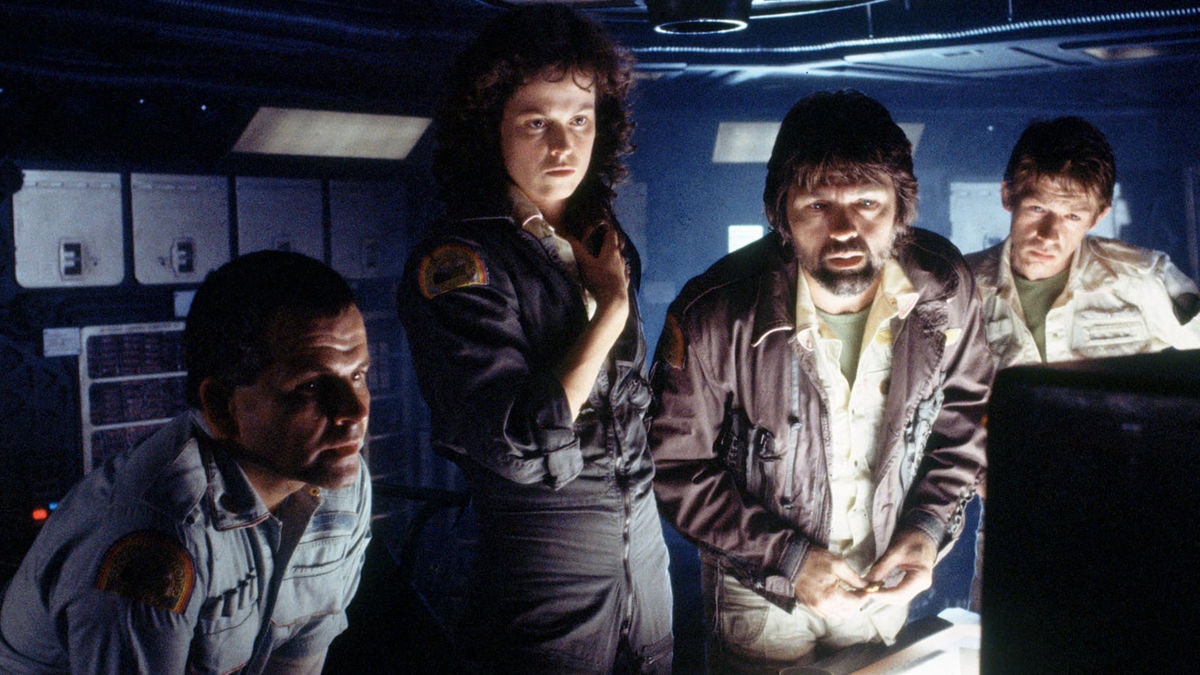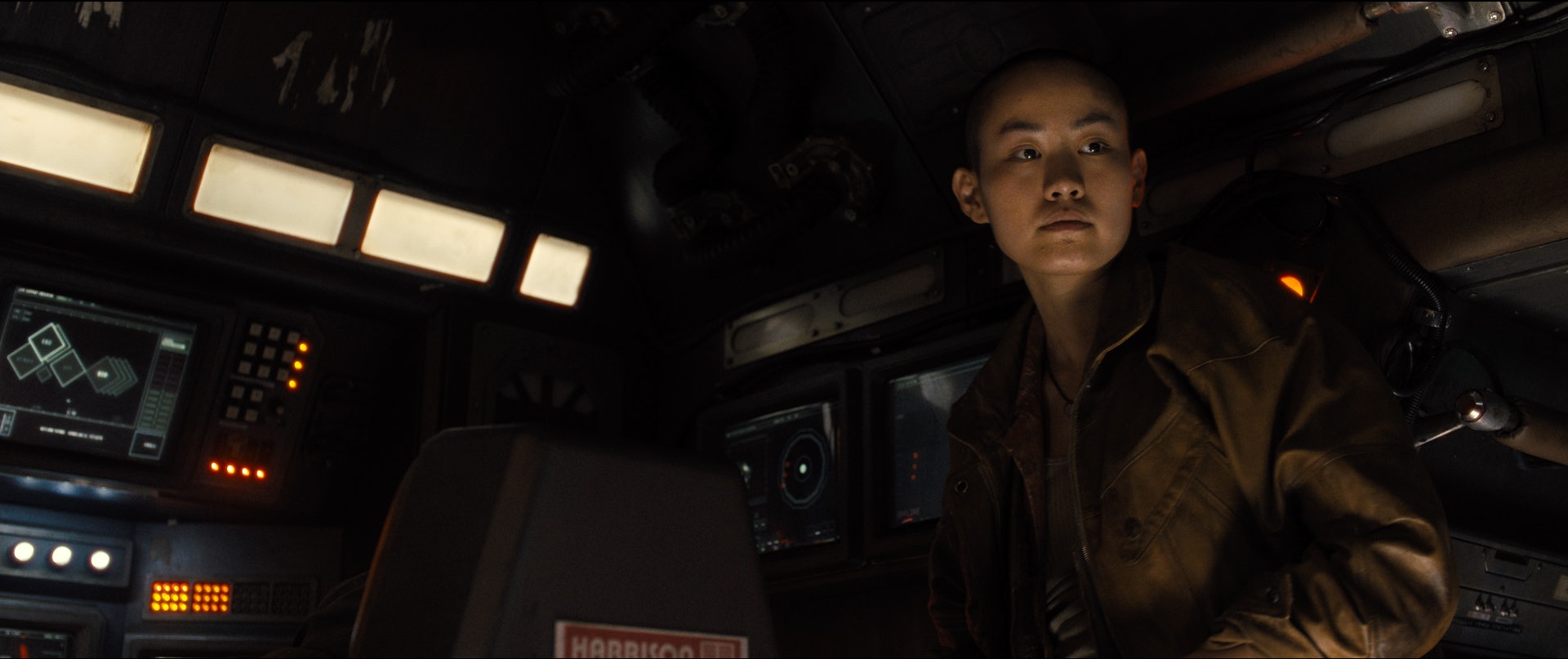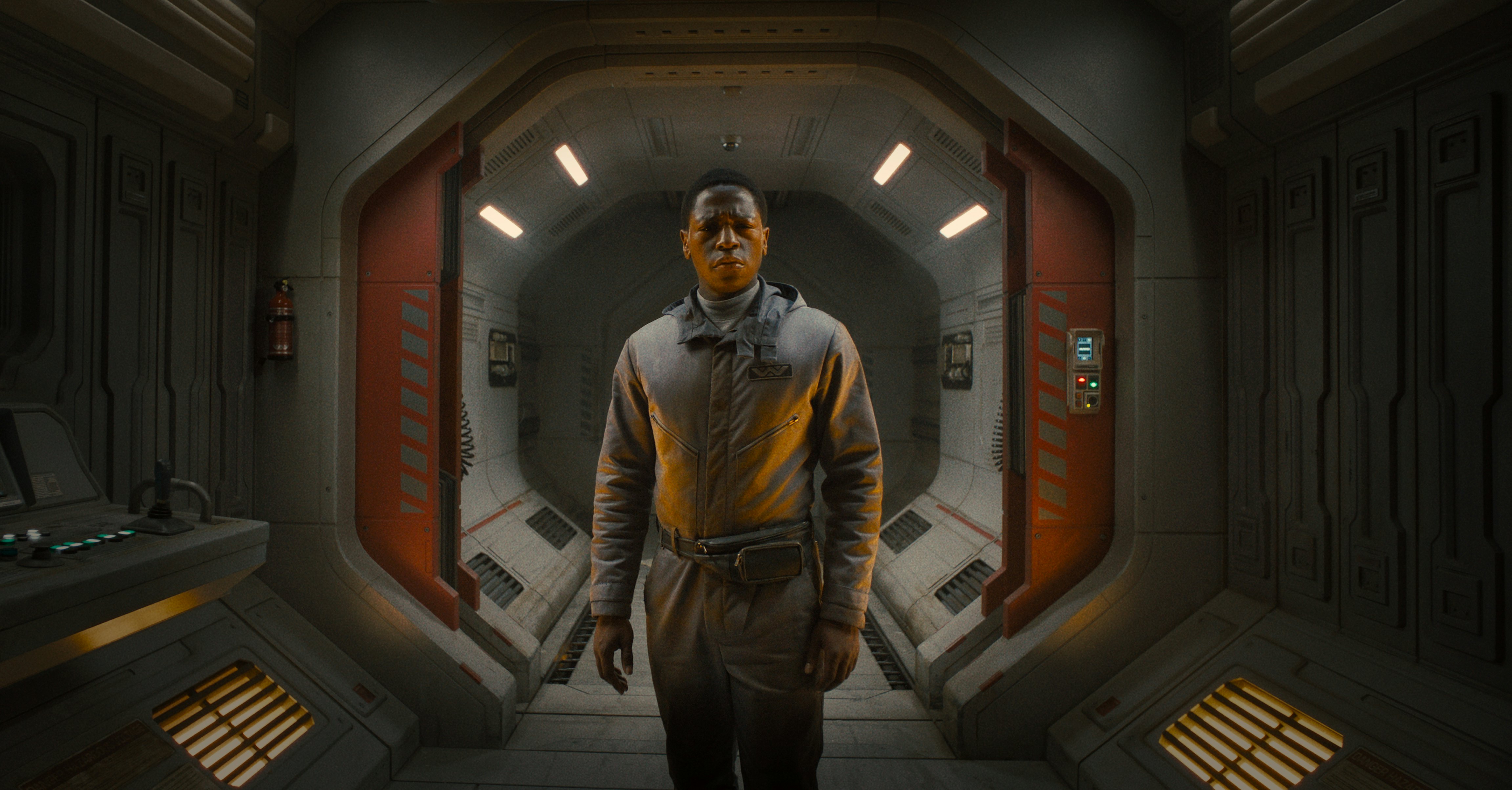
Alien: Romulus has only been out for a few days, but plenty has already been said about the film's many pitfalls. Its decision to "resurrect" Alien actor Ian Holm for a turn as another evil, corporate-minded android has been rightly criticized by both the franchise's biggest fans and critics (including yours truly), as has its reliance on cheap Easter eggs and instances of fan service. For all of its flaws, though, Alien: Romulus does manage to push its franchise in an unexpected new direction.
Indeed, the movie makes at least one radical decision by shifting away from the series' long-held focus on middle-aged, blue collar workers and over-ambitious scientists. In those figures' places, Alien: Romulus positions a cast of young adults whose circumstances are revealed to be both similar and somehow even more nightmarish than their older predecessors. It is, in many ways, the first legacy sequel of any kind that Hollywood has produced that feels like it was made for and with Gen Z in mind.

In Alien, it's a crew of middle-aged space truckers on a return trip to Earth who find themselves fighting for their lives. In Aliens, it's a group of space colonists and marines. The humans in both of those films — and even, to an extent, the prison convicts of Alien 3 — are just people trying to go about their lives who are shocked and horrified to discover that they've been deemed "expendable" by the corporate executives who would rather explore the financial potential of the Xenomorphs than ensure the safety of the humans living and working under their umbrella. All three films explore how corporations routinely take advantage of blue-collar, middle-class people.
Alien: Romulus, conversely, isn't about a group of worn-out adults who are simply trying to get by in a suffocating capitalistic world. Its characters aren't a bunch of middle-aged men and women just trying to do their jobs. They're a collection of young, early 20-something adults who have never known anything but work. They don't have normal lives waiting for them at home. They don't have paychecks they're waiting to collect. They are, as the film's somber opening reveals, kids who are seemingly born into work contracts that they have no real control over. These same contracts prevent them from ever going off-planet, and one shudders to think about what they might say about vacation days.
The Kids Are Not Alright

The mining colony Rain (Cailee Spaeny) and the rest of Romulus' core characters live on has been so choked by the pollution and deadly fumes caused by Weyland-Yutani's mines that its inhabitants never even get to see the nearby sun unless they fly above the planet's atmosphere. Put that another way: Weyland-Yutani has maintained such a stranglehold over Rain and her friends’ lives that they haven't even gotten to experience the simple feeling of sunlight on their skin. Unlike many of the Alien franchise's past characters, they are not suddenly put in the path of danger by their corporate overlords. They are already being killed by them by the time Romulus begins.
The film’s characters have been born into a world where they're forced to risk their lives just to have a shot at knowing what it's like to live free of the corporate smog that blocks their planet's light. Romulus’ dystopian setting, coupled with its characters' ages, makes it one of the first major Hollywood blockbusters in recent memory that is primed to resonate with its younger Gen Z viewers. Generally speaking, very few franchise movies these days seem like they're designed with the concerns or opinions of 20-something moviegoers in mind. But at a time when many Gen Zers are reportedly working multiple jobs just to make ends meet and feeling widespread hopelessness about the likelihood that they'll ever be able to enjoy the same quality of life as the generations that have come before them, Alien: Romulus' story lands with considerable force.
A Dark Upgrade for Dark Times

In the film's second half, Rook (a digitally recreated Holm) reveals that Weyland-Yutani wants to use the Xenomorphs' genetic black goo to create a compound that will allow the company's workers to survive the increasingly inhumane, fatal conditions of its mining and colonial endeavors. This is, notably, a far cry from the corporation's purported goal in Aliens and Alien 3, in which it's suggested that Weyland-Yutani wants to use the Xenomorphs to create biological weapons that could further increase its profits. That was a piece of social commentary that made a lot of sense both during and immediately after the Cold War.
Now, however, when it seems like almost every major company is talking about how how AI can be used to help their human workers increase their efficiency rates, Alien: Romulus' subplot involving Rook's compound feels particularly pointed. Rook says the compound is the "upgrade" humanity has long needed — a turn of phrase that immediately calls to mind a lot of the current promotional rhetoric surrounding the future of AI. The fact that Weyland-Yutani's compound then results in the creation of a human-Xenomorph offspring that is truly disgusting and horrifying just makes Alien: Romulus’ easy-to-miss thematic bite seem that much sharper.

The Alien franchise's original thematic scope was expanded a bit by Ridley Scott's prequels, Prometheus and Alien: Covenant, which follow scientists, colonists, and businessmen who are led to destruction by their own egos and collective, insatiable curiosity. The worthiness of this thematic detour is one that continues to be debated by Alien fans to this day. Regardless of how you feel about them, though, the two films are ultimately interested more in offering a decidedly cynical perspective on timeless themes of creation and the arrogance of man than anything else.
Alien: Romulus has more modern issues on its mind. There seems specifically to be a real feeling among young people today that the already demanding structures of our modern, capitalist society have been allowed to tighten to the point that they are now thoroughly squeezing the life out of our up-and-coming generations. Alongside that feeling has emerged another — a desire to escape, break free, and find a new way to live outside of the world's established rules.
To its credit, Romulus captures both of those sensations well. It's the first Alien movie that feels like it was actually made for a younger audience — and it hasn't come along a moment too soon, either.







